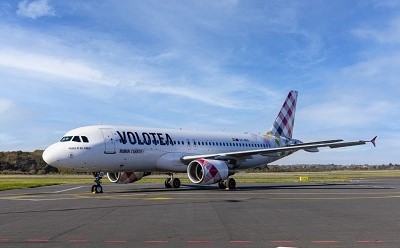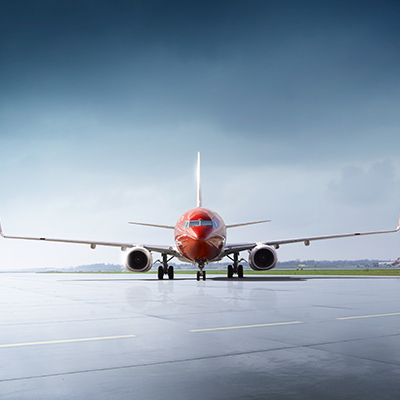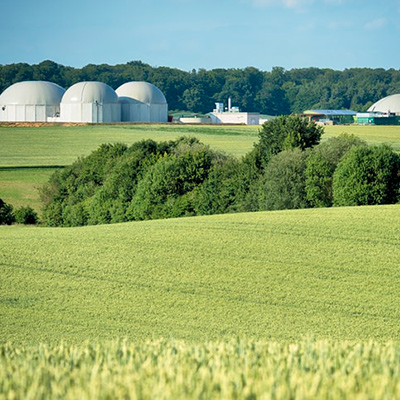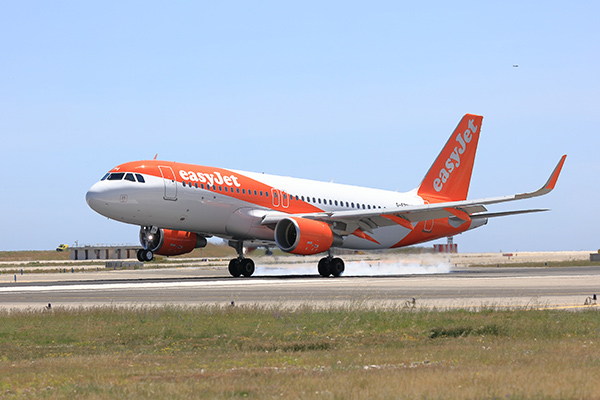- Both companies will boost the development and production of sustainable aviation fuel (SAF) from circular raw materials as well as other energy alternatives, such as green hydrogen and electrification
- Cepsa has a firm commitment to SAF and aims to become the number-one producer of this sustainable fuel in Spain and Portugal, with an annual production capacity of 800,000 tons in 2030
- Biofuels have up to 90% lower CO2 emissions than traditional fuels
- Volotea participates in initiatives to make the aviation industry more sustainable while investing in companies and technologies to achieve greener and more efficient air operations
This sustainable fuel will be produced from organic waste, such as used cooking oils and agricultural waste. These biofuels promote the circular economy, as they are made from waste that would otherwise end up in landfills, and they reduce aircraft emissions by up to 90% compared to traditional fuels.
The partnership will also work on the development of new energy alternatives, such as renewable hydrogen, and the electrification of Volotea’s ground fleets, which include supply vehicles and those for baggage loading and unloading and aircraft assistance.
Tobi Pardo, Cepsa's Aviation Director, said: "As a leading energy supplier to the aviation sector in Spain, we are committed to helping our customers decarbonize their business. SAF makes it possible to greatly reduce aircraft emissions without making any changes to their engines, and it has the same specifications as conventional kerosene in terms of safety and quality."
For his part, Carlos Muñoz, founder and CEO of Volotea, said: "With this agreement, we have taken another step forward in our commitment to make aviation sustainable, and it follows the efforts we have been making as a company for many years to foster the transition to a decarbonized airline industry. We believe sustainable fuels in aircraft will play a key role in this strategy, which is why at Volotea, we started using SAF in 2022 on all flights in the special service we operate between France and Germany. Through partnerships like this one with Cepsa, we aim to collaborate so that these fuels (now difficult to access) can be developed and made mainstream as soon as possible."
This agreement is in line with the European Commission's Fit for 55 package, which includes a legislative initiative called “RefuelEU Aviation” that aims to boost sustainable aviation fuels in the EU to 2% use by 2025 and 6% by 2030, before increasing to 70% by 2050, of which half must be synthetic fuels. And it also supports several of the 2030 Agenda’s Sustainable Development Goals: SDG 7 (Affordable and clean energy), SDG 8 (Decent work and economic growth), SDG 12 (Responsible consumption and production), and SDG 13 (Climate action).
This new partnership consolidates the ambition of Cepsa, one of the main producers and suppliers of aviation fuels in the Spanish market, to become a leader in the clean energy sector. As part of its strategic plan, Positive Motion, the company is developing an ecosystem focused on accelerating the decarbonization of industrial customers, heavy ground, air and maritime transport, as well as the company itself, through the production of green molecules, mainly renewable hydrogen and biofuels. Cepsa aspires to be the leading biofuel producer in Spain and Portugal by 2030, with production capacity of 2.5 million tons annually, and focusing particularly on sustainable aviation, with production capacity of 800,000 tons of SAF every year.
Cepsa has established an ambitious roadmap to cut its emissions, placing it among the leading companies in its sector. Specifically, by 2030, it will reduce its CO2 emissions (Scope 1 and 2) by 55% compared to 2019 and the carbon intensity index of its products by 15-20%, and it aims to be carbon neutral by 2050.
This agreement reaffirms Volotea's sustainability strategy, which has implemented more than 50 initiatives to date. As a result, between 2012 and 2021, it managed to cut its carbon footprint per passenger kilometer by more than 40%. In 2022, Volotea became the first airline to be audited by Bureau Veritas, a world leader in testing, inspection and certification services, in its Voloterra sustainability program. In addition to demonstrating its firm commitment to reducing its environmental impact, the audit confirmed that Volotea is on track to slash its carbon footprint by cutting its CO2 emissions per passenger kilometer by 50% by 2030, compared to 2012.
Among other measures, the airline is consciously working to promote the development of green fuels and actively participating in special initiatives that promote a more sustainable aviation industry. Volotea has operated a special service between France and Germany using SAF since 2022, and it invests in companies and technologies to achieve greener and more efficient air operations. These actions reaffirm its commitment to the adoption and promotion of sustainable solutions in the airline industry.




